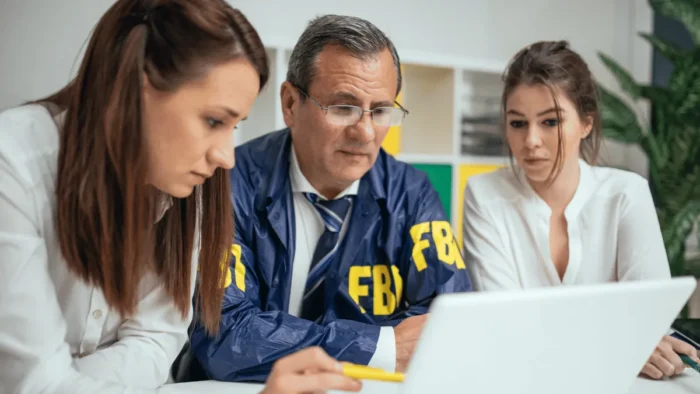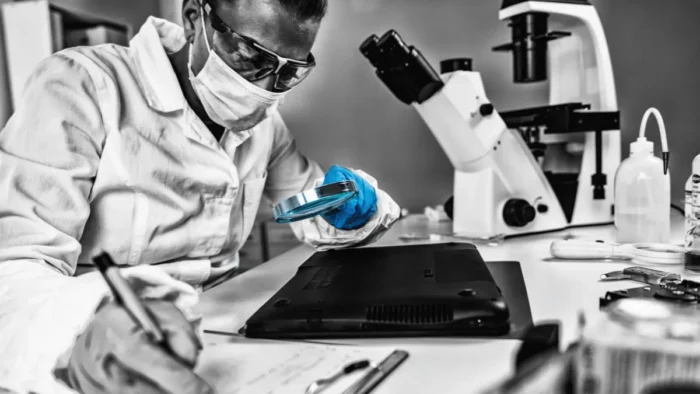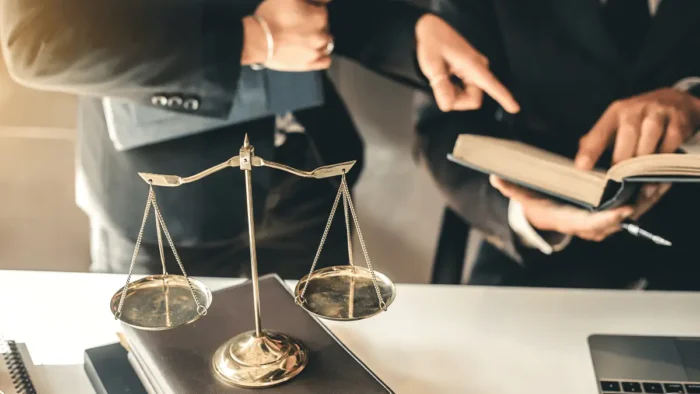The use of technology in criminal investigations is a double-edged sword. On the one hand, it’s truly amazing how technology has revolutionized the way we solve crimes. With advanced tools like DNA analysis, digital forensics, and facial recognition software, law enforcement agencies can gather evidence and track down suspects in ways that were once impossible.
But on the other hand, the use of technology in criminal investigations raises some serious legal and ethical issues. What if the technology is faulty or unreliable? What if it invades people’s privacy? What if it’s used to target certain communities or groups unfairly?
Although it’s best that individuals and companies rely on the professional lawyers like Dribbin & Brown not just for cases at the court but understanding how a case is being handled; it’s generally easy to get caught up in the excitement of all the new technology and forget about the potential downsides.
But as a society, we need to carefully consider these issues and make sure that we are using technology in a way that is both effective and ethical.
At the end of the day, we all want to live in a world where criminals are brought to justice and innocent people are protected. But we also want to live in a world where our privacy and civil liberties are respected. Balancing these competing priorities is a difficult task, but it’s one that we must undertake if we want to build a better, more just society.
Types of Technology Used in Criminal Investigations
The possibilities that technology brings to the table for law enforcement are simply mind-boggling! The range of advanced technological tools at their disposal, when used effectively, can help solve some of the most complicated crimes out there.
From DNA analysis to surveillance cameras, from GPS tracking devices to mobile forensic tools, the list of technology that law enforcement agencies can use to gather evidence is endless. And let’s not forget the role that social media and online communication play in criminal investigations these days!
With technology on their side, the police can dig deeper and faster, uncovering new leads and bringing justice to victims and their families. It’s truly awe-inspiring to see how technology has transformed the field of criminal investigation.
But, with great power comes great responsibility. The use of technology in police investigations must be handled with care and sensitivity to ensure that the rights of citizens are not violated. Legal and ethical considerations must be taken into account at all times.
Surveillance cameras
Surveillance cameras can be a powerful tool for law enforcement in their efforts to solve crimes and protect the public. By monitoring public and private spaces, these cameras can catch criminals in the act and provide crucial evidence for investigations. The feeling of safety that comes from knowing that these cameras are watching over us is truly priceless. However, we must also be mindful of the potential for abuse and invasion of privacy, and ensure that proper safeguards are in place to protect our rights.
Cell phone data
Cell phone records can be a powerful tool in solving crimes and bringing justice to victims. By tracking the movements and communications of suspects, law enforcement can piece together a timeline of events and build a strong case against them. However, it is important to remember that the privacy of individuals must be respected, and access to this sensitive data should only be granted through legal means, such as a search warrant or court order. The use of cell phone records in investigations should be carefully balanced with the rights of citizens, and only used when necessary and justified.
Social Media
Social media has become a valuable resource for law enforcement agencies in their fight against crime. By monitoring suspects’ social media activity, investigators can uncover valuable evidence and build strong cases against criminals.
From tracking movements to identifying potential accomplices, social media can provide critical insights into criminal behavior. However, it is important to remember that the use of social media in investigations must be conducted in a responsible and ethical manner. The privacy and rights of individuals must be respected, and access to this sensitive information should only be granted through legal means.
The power of social media in investigations should be harnessed with care and caution, ensuring that justice is served while upholding the fundamental rights of citizens.

Forensic technology
Forensic science is a remarkable tool in criminal investigations, allowing law enforcement to uncover evidence and bring perpetrators to justice. By studying physical evidence such as DNA, fingerprints, and ballistics, forensic scientists can piece together the details of a crime and build a strong case against the offender.
With the help of new and advanced forensic techniques such as facial recognition programs and gunshot detection systems, law enforcement can quickly and accurately identify suspects and gather evidence to solve crimes. The power of forensic science to hold criminals accountable is truly awe-inspiring.
The Benefits of Using Technology in Criminal Investigations
The use of technology in police investigations is truly remarkable. It has the potential to revolutionize the way law enforcement agencies operate, helping them gather evidence and solve crimes faster than ever before. With surveillance cameras capturing even the slightest of movements, and mobile phone data providing valuable insights into suspects’ whereabouts, no detail goes unnoticed.
The ability to quickly and accurately identify criminals using facial recognition software and gunshot detection systems is nothing short of astounding. It is thrilling to see how technology is being harnessed to make our communities safer and bring justice to victims.
The Role of Surveillance Cameras in Law Enforcement
The use of surveillance cameras in law enforcement is a double-edged sword. While they can aid in solving crimes and providing crucial evidence, their widespread use raises legitimate concerns about privacy and civil liberties. It’s crucial that law enforcement agencies remain transparent about their use of surveillance cameras and that citizens’ right to privacy is protected. It’s a balancing act between public safety and individual rights, and it’s important that the scales are not tipped too far in either direction. The deployment of surveillance cameras must be done responsibly and ethically, with the utmost respect for the law and citizens’ fundamental rights.
Ethical Issues Surrounding the Use of Cell Phone Data in Criminal Investigations
The use of mobile phone data in criminal investigations can be both a powerful and a controversial tool. On the one hand, it can help law enforcement authorities track down criminals and build stronger cases against them. On the other hand, it raises serious concerns about privacy and civil liberties, and the potential for misuse of this sensitive information.
As we continue to rely more on our mobile devices, it becomes increasingly important to ensure that our privacy rights are respected. Law enforcement agencies must be held to a high standard of transparency and accountability when it comes to the collection and analysis of mobile data. They must ensure that they have a legitimate reason for accessing this information and that they obtain it through legal means.
Moreover, it is essential that there are safeguards in place to protect against any misuse of this data. Individuals have a right to know what information is being collected about them and how it will be used. They also have a right to recourse if their privacy rights are violated.
As a society, we must strike a balance between the need to solve crimes and the need to protect individual privacy rights. It is essential that we work together to find ethical and responsible ways to use mobile phone data in criminal investigations, while also respecting the privacy and civil liberties of all individuals.
The Legal and Ethical Issues Surrounding the Use of Technology in Criminal Investigations
The use of technology in criminal investigations is a double-edged sword. While it can be incredibly useful in helping to solve crimes and bring perpetrators to justice, it also raises serious concerns about privacy, civil liberties, and the potential for misuse.It is crucial that law enforcement agencies take these concerns seriously and ensure that any technology used in criminal investigations is employed in a legal, ethical, and responsible manner.
The rights of individuals must be respected, and any data collected must be protected from unauthorized access and misuse.Furthermore, transparency and accountability are key. Law enforcement authorities must be open and honest about the technologies they use, how they use them, and what data they collect. They must also be willing to take responsibility for any inappropriate use of this data and provide redress to individuals whose privacy rights may have been violated.
Ultimately, the use of technology in criminal investigations must be balanced against the fundamental rights and freedoms of individuals. Only by doing so can we ensure that justice is served without compromising our most basic values and principles.
Balancing Technology with Privacy and Civil Liberties
As technology advances, it is vital to remain vigilant and considerate of the legal and ethical implications of its use in criminal investigations. The potential benefits are significant, but so too are the concerns surrounding the misuse of this technology. Therefore, law enforcement must take on the responsibility of using technology in a way that is transparent, legal, and accountable.
Regulations and procedures that are clearly defined and implemented are necessary to ensure that technology is used fairly and without infringing on people’s rights to privacy and civil liberties. It is crucial to strike a balance between the advantages of technology and the protection of individual rights, and we must strive to achieve this equilibrium to ensure a just and equitable society.
The Importance of Transparent and Accountable Use of Technology in Criminal Investigations
It is imperative that law enforcement authorities prioritize transparency in their use of technology. People’s rights to privacy and civil liberties must be protected, and technology must be employed in a lawful and ethical manner. This requires clear policies and procedures for the use of technology, with input from legal and ethical experts.
Being transparent about the technologies used and how they are utilized is critical for building and maintaining public trust. If law enforcement agencies are not forthcoming with this information, people may become suspicious of their activities, leading to concerns about potential illegal activity or violations of privacy.
By educating the public about the technologies they use and the safeguards in place to protect individual rights, law enforcement agencies can promote greater understanding and support.
Sharing data and engaging in public discussion about the appropriate use of technology in criminal investigations can also help build trust and promote ethical practices. Ultimately, transparency is essential to ensure that technology is used in a fair and responsible manner, and to maintain public confidence in the work of law enforcement authorities.





